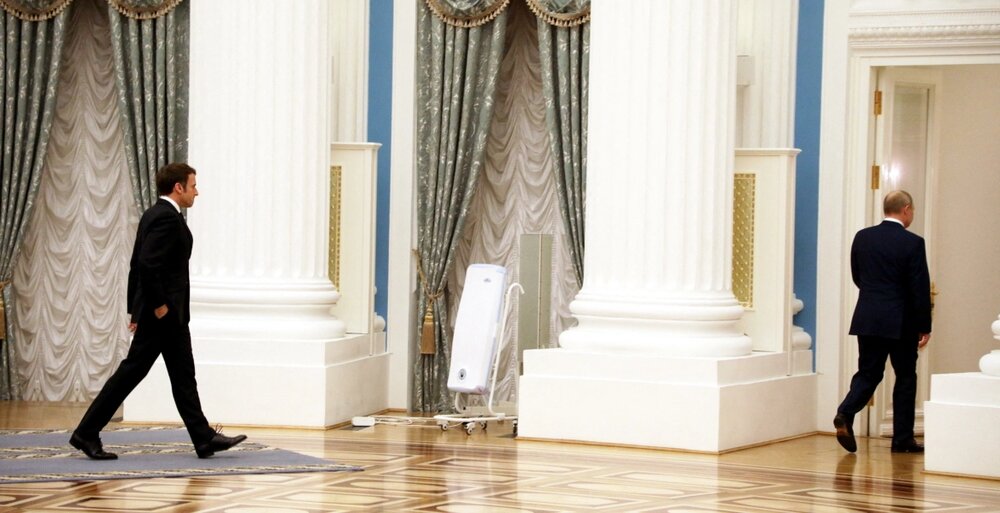Dr. Haadi Dowlatabadi in an interview with the site of Strategic Council on Foreign Relations referred to the French President Emanuel Macron’s initiative to visit Moscow and his effort to play a mediation role between the West and Russia on Ukraine crisis, and said:” After Crimea annexation, NATO has taken the Russian threat more serious than ever in the past and tries to take steps to retake Crimea in case the Ukrainian accession to the Treaty is materialized”.
He dealt with the threat of NATO expansion eastward for Russia and intensification of threats in this respect and added:” Macron’s visit to Russia is noticeable and remarkable. As the main political power of the EU, and a country that has the veto right in the United Nations Security Council, France is the present rotating and periodic Presidency of the EU Council. Therefore, there is a heavy burden on France’s shoulder that it should have played a role in the course of tensions over Ukraine Crisis”.
The professor of Tehran University pointed out to the German measure to halt the implementation of Nord Stream 2 project in reaction to recognizing the independence of Donetsk and Luhansk republics by Russia and continued:” Germany always coordinates its policies with the U.S. and accepts the U.S. general stances. Although Germany is dependent on Russian energy but coordination with the U.S. Administration is its priority”.
Having reminded that Macron paid his visit to Russia within the framework of the European Union presidency, Dowlatabadi said:” Russia has managed to act so powerful as to make French President visit Moscow to hold negotiations, but it seems that Russian President in his meeting did not find Europe capable and serious enough to play an effective role concerning de-escalation between Russia and the U.S.”.
He added:” in fact, Russia wanted to play with one of his cards and thus recognized the two republics that had claimed independence from 2014. Subsequently, Putin started military operations under the pretext of their demand for assistance, and as Ukraine has not acceded to NATO as its member yet, other members are unable to do anything except threatening to sanction and applying those sanctions”.
He said:” the important issue that received less attention was the modality of Putin and Macron presence at their joint press conference. As Putin was the host, his podium was near to the exit door and after he announced the end of the press conference, he immediately left the saloon without waiting for Macron with his hand indicating the exit door, and Macron left the saloon alone. The same happened in the course of the visit of Germany’s Chancellor that reflects European powers are not taken seriously by Russia”.
Diplomatic Effort to Buy Time
Dowlatabadi stressed:” Russia is happy to boast its power to Europe, because a weakened Europe will better serve Russian interests anyway. In fact, Macron’s visit was only a diplomatic effort to buy time to solve the crisis and to tranquilize the atmosphere. But Russia concluded that Europe is unable to distance itself from the U.S. and to play an effective role to de-escalate tensions between NATO and Russia”.
Having stated that in his visit to Moscow, Macron was looking for electioneering and showing off France’s power in Europe and its potential to mediate in disputes, he added:” France was trying to play the role of the third force and to meet its interests in the course of tension between Russia and the U.S. but in addition to become humiliated at the press conference with Putin, he received a strong impact after the two self-proclaimed independent republics of Ukraine was recognized by Russia”.
Having stated that Macron’s election contenders have closer inclinations towards Russia and Eastern Europe, and they do not assess France’s membership in the European Union in line with its interests; the positions that are completely against Macron’s objectives, he added:” Now, Macron tries to put his weight behind the policy of imposing the new sanctions upon Russia, and thus to restitute his tarnished prestige following the diplomatic failure”.










0 Comments